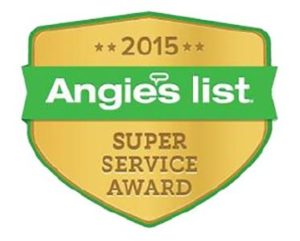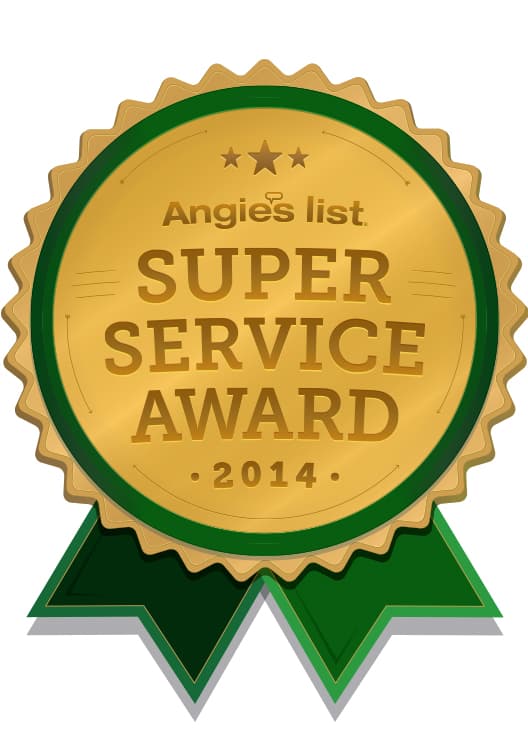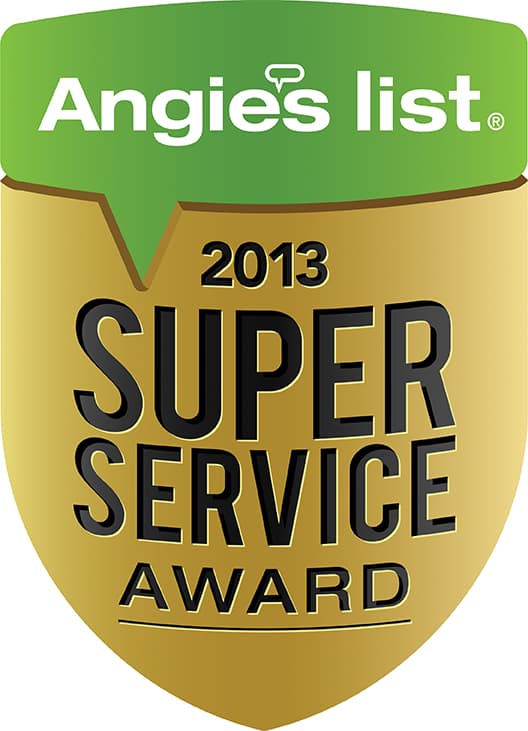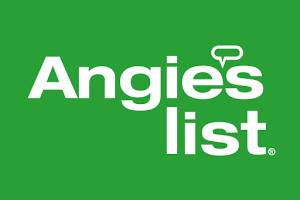Archive for the ‘covid-19’ Category
Does Cooking Food Kill Coronavirus?
June 24th, 2020
The short answer is: yes. The longer answer is: it really shouldn’t be a concern.
Biology Matters
There have been no cases of COVID-19 associated with food ingestion. And while doctors and scientists continue to learn about this disease, it is highly unlikely that we will discover that you can contract it from the food you eat. Whatever you put in your mouth is immediately subjected to the digestive process designed to convert it into usable nutrients and waste. If the coronavirus were present on the surface of your food, it would almost certainly be killed by your stomach acids. In the unlikely event that it survives that onslaught, it would then enter into your intestines, and then out of your body. There is no pathway from your stomach to your lungs. Theoretically, there is the possibility that it could move from the mouth to the larynx and thereby into the lungs, but there has never been a case where that happened. COVID-19 needs to enter the respiratory system in order to produce the disease, and given the nature of human biology, the food you eat cannot cause the illness.
Cooking Helps Too
Because COVID-19 is so new, there is no settled science about the heat needed to kill it. However, the SARS virus (a close relative to COVID-19), is inactivated at 133ºF to 149ºF. Given that nearly all cooking is done at temperatures above 300ºF, it is reasonable to assume that COVID-19 would be killed in the cooking process as well. Again, though, it ought not to matter since your body would deal with the virus in the course of normal digestion.
Kitchen Hygiene – Fresh Produce
Just as you should have been doing before the COVID-19 outbreak, you should wash your fresh produce before using it. It is sufficient to use clean running water; you don’t need to (and shouldn’t) use any kind of cleaner on the produce. Leafy greens can be submerged in cool water then run through a salad spinner or dried with paper towels. Sturdy vegetables (like root vegetables) can be scrubbed with a vegetable brush under running water. Delicate produce (like raspberries) can be cleaned by hand under gently running water.
Kitchen Hygiene – Clean Surfaces
More important than the food you consume is the environment in which that food exists and is prepared. Now more than ever, it is essential to keep your kitchen clean. Use any standard surface sanitiser to clean your counters, and do so frequently. Be mindful of where you’re putting your grocery bags when you return from shopping, and clean those surfaces thoroughly before using them in food preparation. The risk of transmission from packaging is very low, but again, it’s an easy thing to wipe the counter after taking the pizza out of the box.
Kitchen Hygiene – Washing Hands
Washing your hands before you begin cooking should be part of your usual kitchen routine. Now, it may be wise to wash your hands more frequently while you prepare food. After washing the vegetables, wash your hands. After wiping the counter, wash your hands. It can’t hurt, and we know that hand washing is the most effective weapon in the prevention of COVID-19.
COVID-19 is very frightening, but it’s good to know you don’t need to worry about preparing, cooking, and eating your food.
Posted in covid-19 | Comments Off on Does Cooking Food Kill Coronavirus?
Appliance Repair During Quarantine: Safety Precautions to Take
June 24th, 2020
You don’t really understand how vital your appliances are to your quality of life until one breaks down. And during the recent lockdown, people have been using their stoves, dishwashers, washing machines, etc. even more than usual. If something goes wrong, you want it fixed right away. At Dave’s Appliance, we have been open throughout the lockdown as an essential business, and we have made safety precautions part of our repair routine. In this post, we’ll share what we do, and what you can do, to keep yourself and your family safe during an appliance repair in your home.
What We Do – No Exposed Employees
If any of our employees have any symptoms of COVID-19, we encourage them to get tested immediately. They also stay home for 14 days. If any of our employees are informed that they have been exposed to COVID-19, they stay home for 14 days whether or not they have any symptoms.
What We Do – Masks
Whenever we come into a home to do a repair, we wear masks. Masks are designed to protect those encountered more than those wearing them. So wearing a mask is a mark of our respect for our customers. We don’t want to introduce disease into your home.
What We Do – Hand Sanitizer
We have hand sanitizers in our vans; we have hand sanitizer on our persons. We use hand sanitizer before entering your home, and we use it again if the repair takes a while. Hand sanitizer has been demonstrated to kill the COVID-19 virus effectively.
What We Don’t Do – Gloves
At Dave’s Appliance we have chosen not to wear gloves. If they aren’t immediately taken off after every encounter, they can become a source of transmission, and “[g]loves can be a source of contamination if they are not removed properly” (Wisconsin Economic Development Corp). Also, repairing appliances requires a lot of fine manipulation of various mechanical parts. Wearing gloves inhibits our ability to actually do our job quickly and well.
What We Do – Social Distancing
Everybody at Dave’s Appliance is fully committed to social distancing. We will do our best to enter and leave your house without coming within six feet of anyone in your family. When following you to the appliance, we will stay well behind you. When we are working on the appliance, we will announce it if we are going to move out of the vicinity for any reason, giving you notice so social distancing can be maintained.
What You Can Do – Social Distancing
When someone from Dave’s Appliance appears at your door, you can open the door and then move far enough away so that social distancing is maintained. If you can direct us verbally to the room where the appliance is, please do so. If you need to show us, remember that we won’t be right on your heels. It’s best if you and any other members of your family can stay out of the room where we’re working on your appliance. If that’s not possible, do your best to stay six feet away from our repairman.
What You Can Do – Clean Surfaces
It shouldn’t be necessary, but if you are concerned, you could wipe down any surfaces that our repairman has come in contact with after we leave. That would mean any door handles that we may have touched, and of course, the appliance itself. Again, because of our precautions, this step isn’t strictly needed, but you’re certainly welcome to do it if you’re worried.
You shouldn’t struggle along without a functioning stove or washing machine because of fear of COVID-19. With reasonable precautions, Dave’s Appliance has been fixing appliances throughout this time. We can fix yours too.
Posted in covid-19 | Comments Off on Appliance Repair During Quarantine: Safety Precautions to Take
Washing Clothes During Coronavirus: What’s the Safest Way?
April 28th, 2020
The COVID19 pandemic is especially lethal for several reasons: it attacks the lower respiratory system immediately, and it is extremely contagious. While there is still a lot that the scientists do not know about COVID19, the general agreement is that it is spread through droplets that settle on surfaces and can remain contagious for up to 72 hours. Different surfaces have different time frames, however, and experts are not yet certain how long COVID19 can remain on fabric. What we do know is that ordinary soap and water can destroy the virus on the skin. And the same science applies to laundry.
The Science of Soap
Almost all viruses consist of three key elements: ribonucleic acid (RNA), proteins and lipids. There are no strong covalent bonds holding these units together, which means you do not need harsh chemicals to split them apart. The weakest part of the virus is the lipid or fatty layer. Soap dissolves the fat membrane and the RNA and proteins go their separate ways, no longer a threat. Laundry detergent works on the same principles. The surfactants (surface active agents) in laundry detergent have molecules that have two ends: one to attach to lipids (grease and dirt), and one to attract water. So during the wash cycle, the laundry detergent would work on the lipids in the COVID19 virus, breaking them down, and then rinse it all away in the rinse cycle.
Laundry Strategies to Combat COVID19
Knowing that simply doing your laundry can help prevent this disease gives you substantial power over it. While it is not necessary to do your laundry any differently from normal, you may choose to wash clothes at a higher temperature or use a detergent that specifies that it’s good on grease. Other key considerations to minimize the spread of COVID19 are these:
· Do not shake out dirty laundry. You may be in the habit of shaking out your dirty laundry before putting it in the machine. Now is the time to break that habit. Shaking your dirty laundry creates the potential for the COVID19 virus to travel from the fabric to your skin, or some other surface where it can remain infectious.
· Separate towels for household members. Each person should have their own hand towel and bath towel, and they should be washed more frequently than usual. The hand towel especially will be used more frequently because everyone should be washing hands multiple times a day.
· Cloth Face Masks and Gloves. The CDC is now recommending that everyone wear cloth face masks when out in public. They are also clear that you should not diminish the supply needed for medical professionals. It is easy to make or create your own cloth face mask. Similarly, cloth gloves don’t take away from the disposable gloves needed by medical professionals and protect you against COVID19 as well. It is important that you put these cloth face masks and gloves into the washing machine as soon as you enter the house after a public excursion. They need to be washed after every use.
· Wash some items on the hottest setting. Fabrics that have been in contact with bodily fluids should be washed at the hottest setting possible for the cloth. For instance, anything that has had vomit or feces on it (including diapers) should be washed on hot. Sports wear, too, should be washed in water as hot as the fabric can withstand. And of course, towels should be washed on hot.
Your washer is your ally in the fight against COVID19. It’s designed to deal with grease and grime, and COVID19’s fatty layer can be destroyed in your washer as well. Use it frequently to keep yourself and your family safe during this pandemic.
Posted in cleaning, covid-19, washing machine | Comments Off on Washing Clothes During Coronavirus: What’s the Safest Way?
Will Dishwashers Kill COVID-19? Best Way to Wash Dishes During Crisis
April 28th, 2020
The particular strain of the Coronavirus known as COVID19 has created an unprecedented situation around the world. Here in the United States, the number of people with confirmed coronavirus cases tops 217,000 (as of Friday, April 3rd), more than China, Italy, or Spain. Thirty-eight states, Washington, D.C., and the territory of Puerto Rico have declared lockdowns, where residents are instructed to stay at home, nonessential businesses are closed, and only essential workers are out and about. Even states without lockdown orders have metro areas on lockdown, and a few states have ordered nonessential businesses to close without adding that residents need to stay at home. All told, about 90% of America’s population (297 million) are at home. And they’re worried.
The Science of Soap
In order to best protect yourself and your household, it is important that you understand what COVID19 is, how it is transmitted, and how you can fight it in your home. COVID19 is a virus made up of three different elements, and one of them is a layer of lipids (or fat). That makes it vulnerable because soap and detergents break down fats. Without this lipid layer to hold the virus together, it breaks apart. So hot water and detergent make the coronavirus inactive.
Dishwashers Deliver
Your ordinary household dishwasher is the best method of delivering detergent designed to cut through lipids (grease) combined with water at high temperatures. Most standard dishwashers operate at 150º – 160º F and often have a sanitation final rinse cycle of 180ºF. Even the older models wash at temperatures of at least 120ºF. So your dishes, cutlery, pots and pans will be blasted with the best combination around to ensure any COVID19 virus disappears down the drain. Here are some pointers to get the best out of your dishwasher during this pandemic:
*Check your water temperature settings. In order for your dishwasher to use water as hot as it is designed to use, the temperature setting on your boiler must be set accordingly. Many people have boilers set several levels below the highest. Find out what your boiler is set for and adjust it if needed. You want really hot water in your dishwasher right now.
*Remember that COVID19 can live on surfaces up to 72 hours. That means that stainless steel, glass, ceramics, and plastics could all harbor coronavirus for days. Putting all your dishes through the dishwasher wouldn’t be a bad idea. And put your used items through the dishwasher immediately after the meal. It’s not necessary to wait for the dishwasher to be completely full.
*Choose a grease-specific detergent. All detergents have lipid attacking qualities, so the brand of dishwashing detergent is not critical. However, some detergents advertise as particularly tough on grease. Using one of these may give you even more assurance that your dishwasher is dealing with COVID19.
If you do need to hand wash any of your dishes, use gloves and the hottest water you can stand along with a dishwashing liquid designed to cut through grease. It’s better to use the dishwasher, even for very small loads. At Dave’s Appliance, we want to support your family staying safe during this crisis. Using your dishwasher is a great way to do just that.
Posted in covid-19, dishwasher | Comments Off on Will Dishwashers Kill COVID-19? Best Way to Wash Dishes During Crisis








